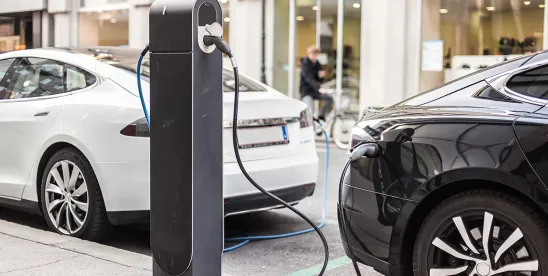Trump Administration Trade and Tariff Policies
- Foley & Lardner provided an overview for multinational companies regarding the most common False Claims Act risks that may arise from improper management of import operations.
- A May 28 ruling from the U.S. Court of International Trade suspended a significant portion of the Trump administration’s tariffs, after the panel determined the executive branch had wrongfully invoked an emergency law to justify the levies. The Trump administration has requested a stay and appealed the ruling.
- The Department of Commerce on May 20 issued the “procedures for submission of documentation related to automobile tariffs,” for automobile importers to comply with the process of identifying the amount of U.S. content in each model imported into the United States. The agency stated there were roughly 200 repeat importers of subject automobiles in 2024. The notice indicated there are 13 OEMs with automobile operations in Canada and Mexico, with production spanning 54 vehicle model lines.
- The Commerce Department on May 20 announced preliminary determinations that active anode material produced in China is unfairly subsidized by the Chinese government, which could lead to anti-subsidy duties on imports. The agency expects to issue final determinations in countervailing duty (CVD) investigations later this year. Active anode material is a key component in lithium-ion batteries.
- China began issuing a limited number of export licenses for certain rare earth magnets, following weeks of uncertainty after the nation imposed trade restrictions over certain rare earth minerals and magnets in early April. The magnets are essential for a range of auto components.
- Section 232 tariffs will not help the United States diversify its sources of critical minerals and reduce its reliance on China, according to a recent letter from the National Association of Manufacturers to the Commerce Department. The NAM suggested policymakers should instead pursue permitting reforms, secure favorable trade and investment terms with international allies, and enact strategic incentives to enhance domestic production. China mines roughly 70% of the world’s rare earths, and the nation has a 90% share for the processing of rare earths mined worldwide.
- President Trump on May 25 stated the U.S. will delay implementation of a 50% tariff on goods from the European Union from June 1 until July 9, 2025.
Automotive Key Developments
- In a May 29 Society of Automotive Analysts Coffee Break webinar, Ann Marie Uetz of Foley & Lardner and Steven Wybo of Riveron provided an overview of the mounting risk of EV programs and the resulting key takeaways for automotive suppliers.
- Crain’s Detroit provided an update regarding the status of several ongoing legal disputes between Stellantis and certain suppliers.
- MEMA survey data found three-quarters of automotive suppliers expect worse financial performances in 2025 than previously anticipated. In addition, more than half of the trade group’s members are concerned about sub-tier supplier financial distress resulting from higher tariff-related costs, as well as the potential for North American production volumes to fall as low as 13.9 million to 14.3 million this year.
- U.S. new light-vehicles sales are projected to reach a SAAR of 15.6 million units in May, according to a joint forecast from J.D. Power and GlobalData. The analysis estimates “approximately 149,000 extra vehicles were sold” in March and April ahead of the expectation for higher prices due to tariffs, and the “re-timed sales will present a headwind to the industry sales pace for the balance of this year.”
- The National Highway Traffic Safety Administration submitted its interpretive rule, “Resetting the Corporate Average Fuel Economy Program,” to the White House for review. The Environmental Protection Agency is pursuing parallel vehicle emissions rules.
- The U.S. Senate on May 22 approved three House-passed Congressional Review Act resolutions to revoke EPA-granted waivers that allowed California to impose vehicle emissions standards that were stricter than federal regulations.
- The “big, beautiful” tax and budget bill passed by the U.S. House on May 22 would terminate several tax credits for EVs after December 31, 2025, including commercial EVs under Section 45W, consumer credits of up to $7,500 for new EVs under Section 30D and up to $4,000 in consumer credits for used EVs under Section 25E, as well as a credit for charging infrastructure under Section 30C. The bill also included a measure to establish annual registration fees of $250 for electric vehicles and $100 for hybrid vehicles to supplement the Highway Trust Fund.
- Companies that collect and store personal data will soon have to comply with a Department of Justice rule that restricts sharing bulk sensitive personal data with persons from China, Russia, Iran, and other countries identified as foreign adversaries. The Data Security Program implemented by the National Security Division (NSD) under Executive Order 14117 took effect April 8, 2025. However, the DOJ will not prioritize enforcement actions between April 8 and July 8, 2025 if a company is “engaging in good faith efforts” towards compliance.
- While President Trump expressed approval for a “planned partnership” between Nippon Steel and U.S. Steel, questions remain about the timeline for the proposed $14 billion merger first announced in December 2023. The deal may involve a so-called “golden share,” allowing the U.S. federal government to weigh in on certain company decisions, according to unconfirmed reports.
- The University of Michigan predicted U.S. vehicle prices could rise 13.2% on average, or by $6,200 per vehicle, due to tariffs and retaliatory trade policies.
OEMs/Suppliers
- Plante Moran’s annual North American Automotive OEM – Supplier Working Relations Index® (WRI®) Study found supplier relationships improved with Toyota, Honda and GM, and declined with Nissan, Ford and Stellantis compared to last year’s study. Toyota gained 18 points for its highest WRI score since 2007, while Stellantis dropped 11 points and remains in last place.
- Stellantis named Antonio Filosa as CEO, effective June 23. Filosa currently serves as chief operating officer for the Americas and chief quality officer.
- GM will invest $888 million to produce next-generation V-8 engines at its Tonawanda Propulsion plant near Buffalo, NY, representing the largest single investment the automaker has ever made in an engine plant. The automaker canceled a $300 million investment to retool the plant to manufacture EV drive units.
- Toyota will revise its supply chain process to provide 52-week forecasts using cloud-based forecasting tools.
- Bosch has a goal for North America to represent 20% of its global sales by 2030.
- Toyota is reported to be considering a compact pickup truck for the U.S. market to compete with the Ford Maverick and Hyundai Santa Cruz.
Market Trends and Regulatory
- Ford will recall over one million vehicles in the U.S. due to a software error that may cause the rearview camera image to delay, freeze, or not display.
- Installations of industrial robots in the automotive industry in 2024 rose 11% year-over-year to 13,700 units, and roughly 40% of all new industrial robot installations in 2024 were in automotive, according to preliminary analysis from the International Federation of Robotics. Deployments of automation technologies and robotics are expected to increase at U.S. factories in response to high tariffs and trade uncertainty.
- Seventy-six percent of respondents in Kerrigan Advisors’ 2025 OEM Survey believe Chinese carmakers eventually will enter the U.S. market, and 70% are concerned about the impact of Chinese brands’ rising global market share.
- New orders for heavy-duty trucks in North America fell 48% year-over-year in April to levels not seen since the onset of the Covid pandemic, according to ACT Research.
Autonomous Technologies and Vehicle Software
- The Wall Street Journal provided an exclusive report on allegations that now-defunct San Diego-headquartered autonomous truck developer TuSimple shared sensitive data with various partners in China. The former CEO of TuSimple recently founded Houston-based self-driving truck developer Bot Auto.
- Amazon’s Zoox plans to expand testing of its autonomous driving technology in Atlanta. Waymo offers driverless rides in Atlanta in partnership with Uber, and Lyft plans to roll out ride-hail services in the area with May Mobility later this year.
- Reuters reports a project between Stellantis and Amazon to develop SmartCockpit in-car software is “winding down” without achieving its goals.
- The New York Times provided an assessment of the regulatory and market risks that may complicate the rollout of driverless semi trucks in the U.S.
- Swedish driverless truck startup Einride is considering a U.S. IPO.
Electric Vehicles and Low-Emissions Technology
- Honda reduced its planned all-electric vehicle investments by over $20 billion as part of an electrification strategy realignment that will target 2.2 million hybrid-electric vehicle (HEV) sales by 2030.
- Stellantis will delay production of its 2026 base-model electric Dodge Charger Daytona at its plant in Ontario due to uncertainty over market demand and the impact of tariffs.
- Cox Automotive estimated inventory levels for new EVs reached a 99 days’ supply industrywide in April 2025, representing a YOY decline of 20% due to efforts by automakers to adjust production in response to consumer demand. The average transaction price (ATP) for a new EV was $59,255 in April, up 3.7% compared to April 2024.
- Nissan is considering a deal to procure EV batteries in the U.S. from a joint venture between Ford and South Korea’s SK On, according to unnamed sources in Bloomberg and The Wall Street Journal.
- Chinese EV maker BYD plans to establish a European hub in Hungary, with 2,000 jobs to support vehicle sales, after-sales service, testing and development.






 />i
/>i
